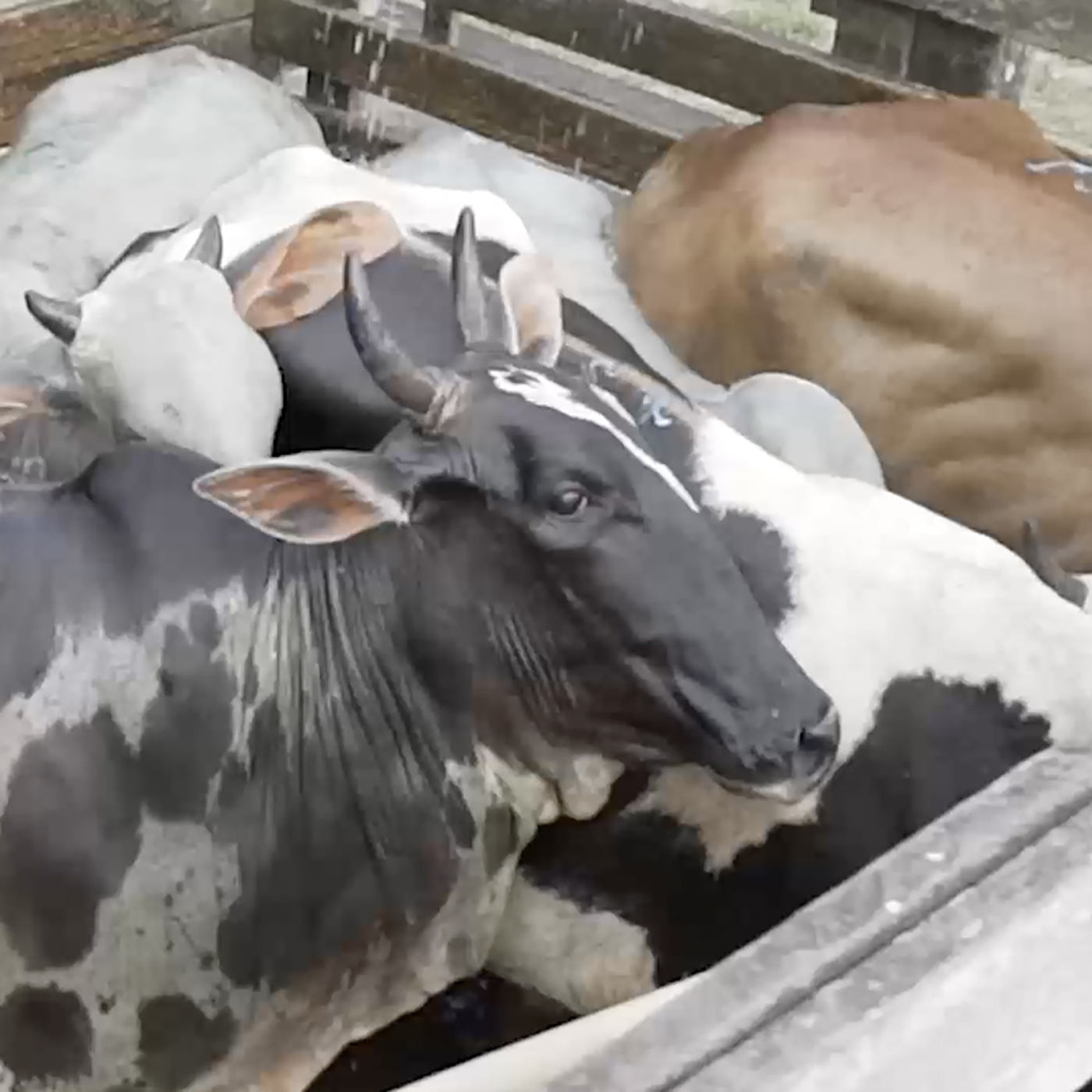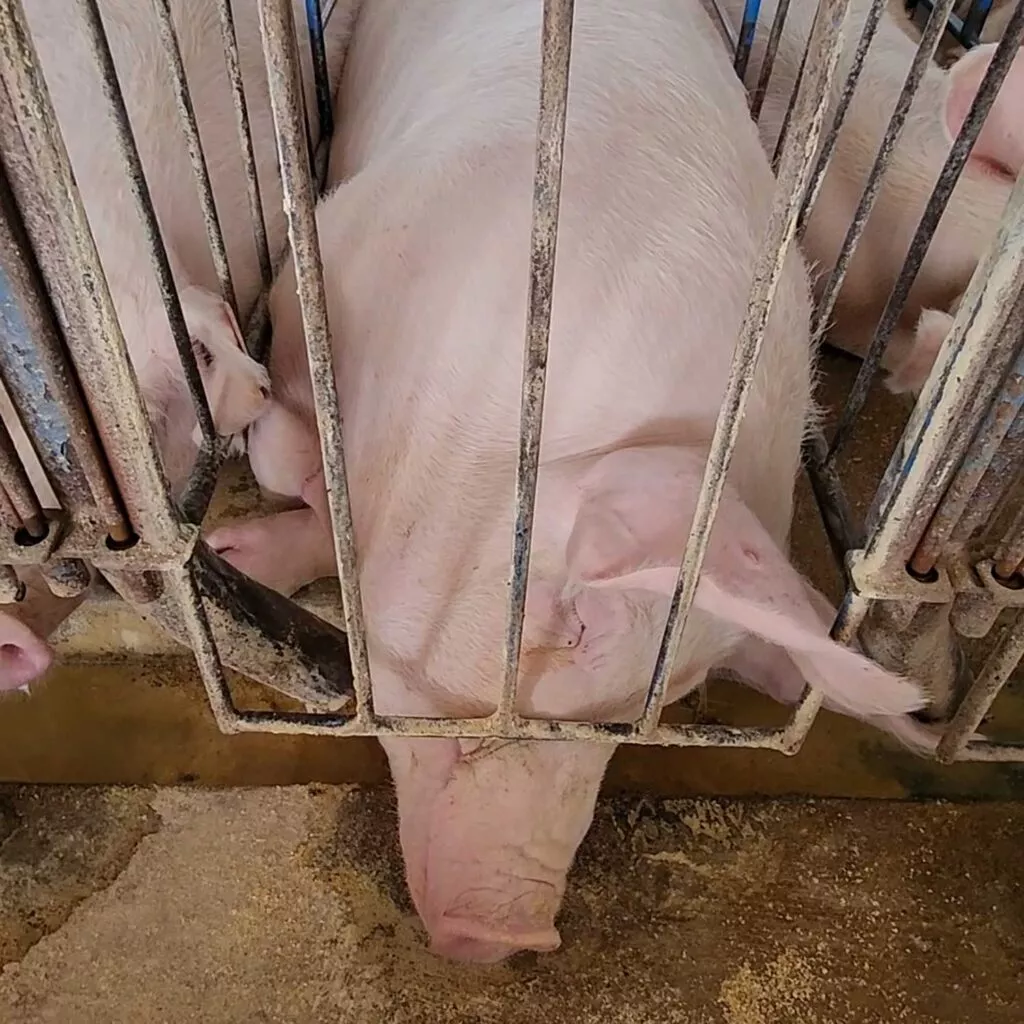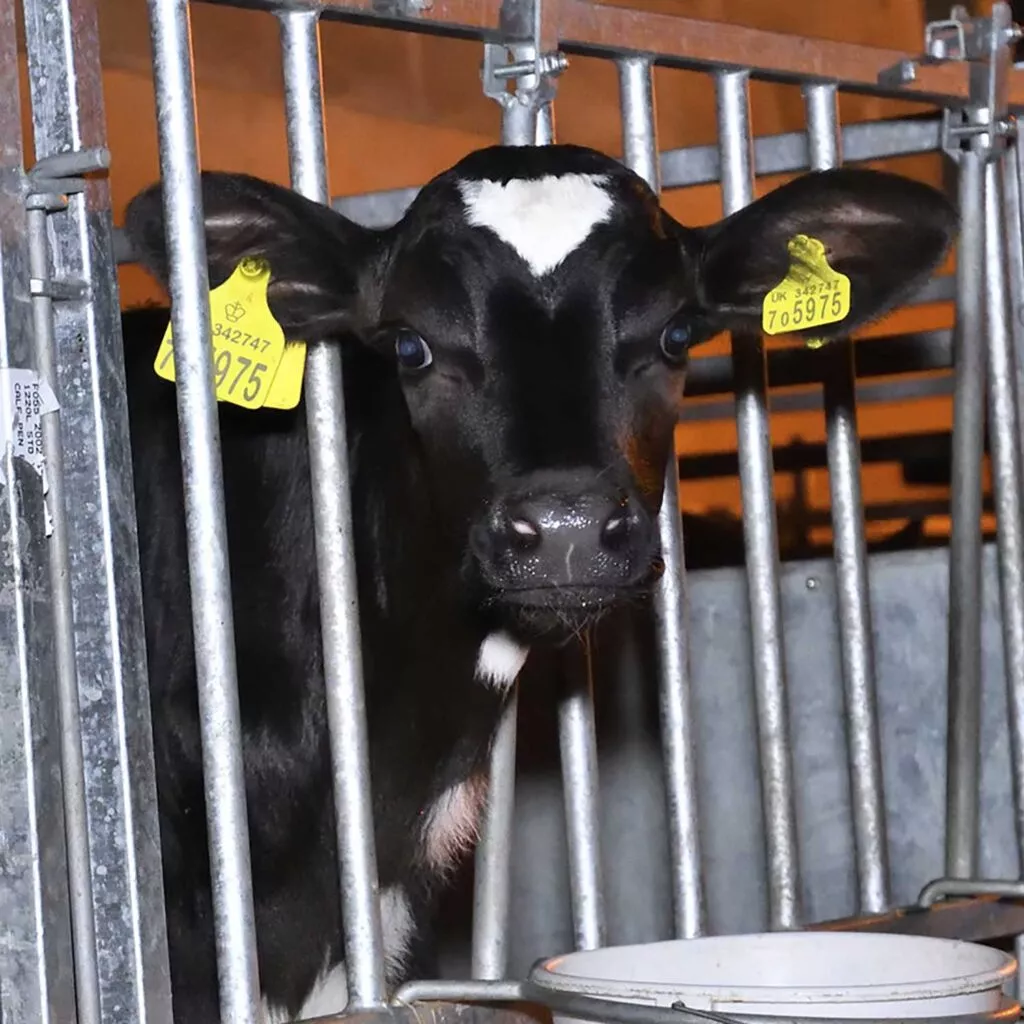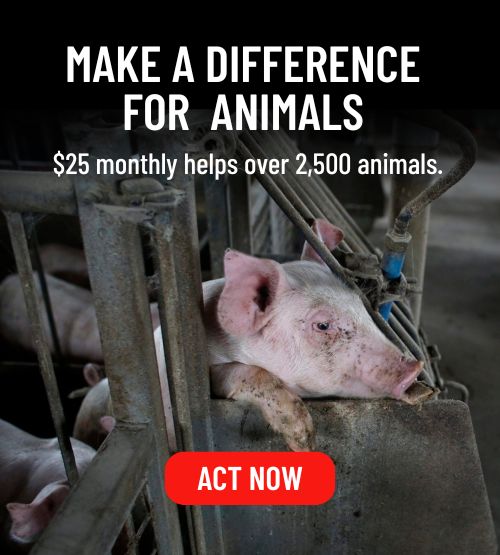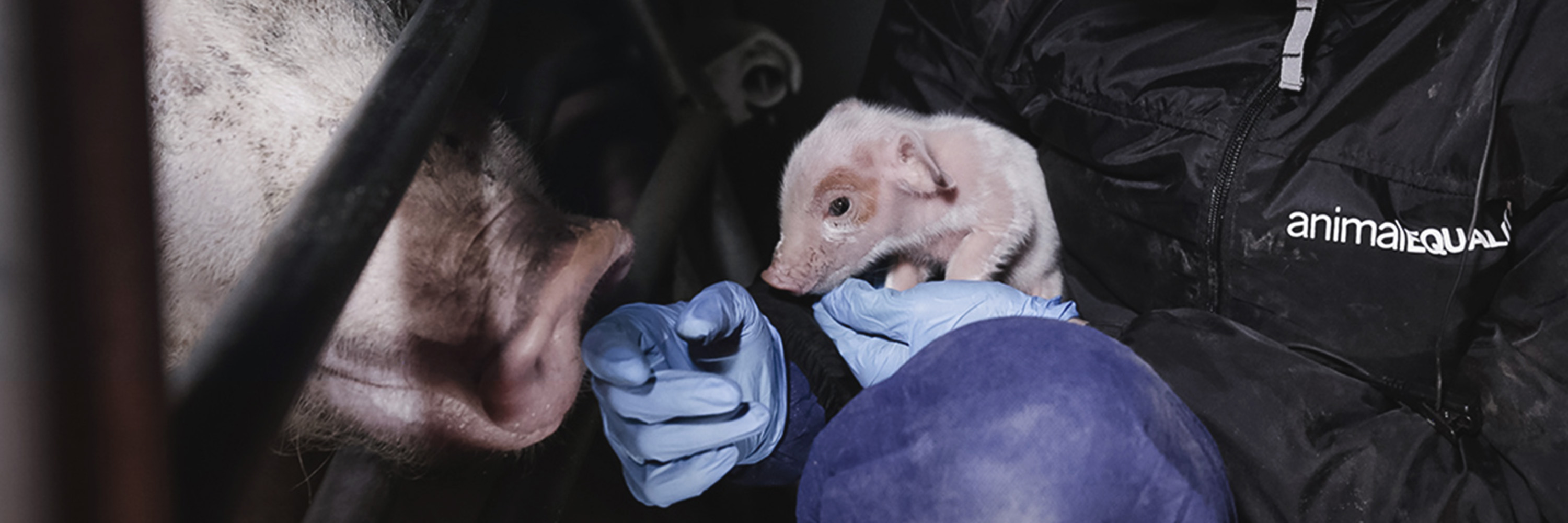
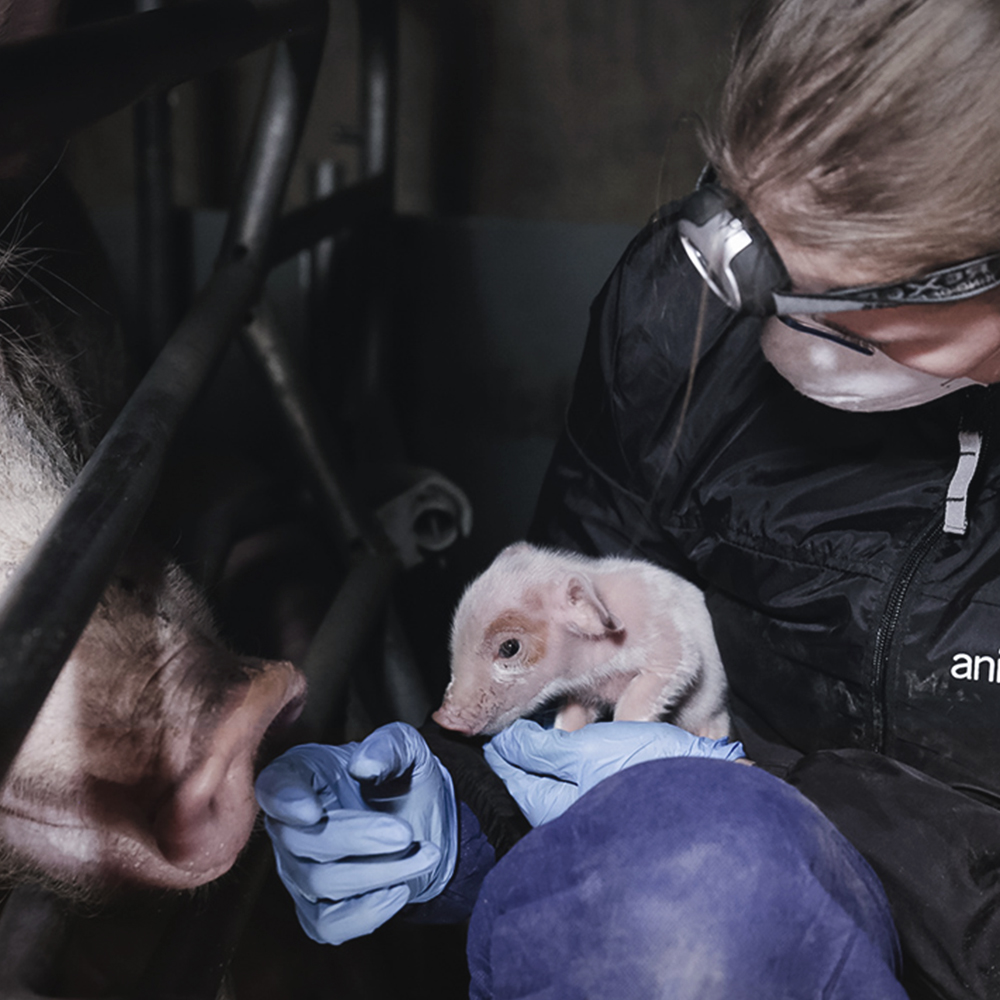
15 Years of Working for Animals: Here Are the Industries We’re Up Against
For 15 years, Animal Equality has worked tirelessly to raise awareness about what happens to billions of farmed animals behind the closed doors of farms and slaughterhouses all around the world. To date, we have investigated more than 800 facilities and were one of the first organizations to expose the horror of the animal agriculture industry.
These are the industries that we have focused on over the past 15 years, along with what we’ve uncovered and what we’ve achieved for animals.
Our Investigations Inside Pig Farms
Over the years, we have focused on several occasions on the suffering of pigs raised and killed for their meat and have released more than 20 investigations worldwide, from the US to Brazil.
We conducted the very first investigation in 2010 when we first uncovered what was happening inside 172 farms in Spain. It took 60 Animal Equality investigators over two years of work to document and expose the reality that pigs are subjected to in the meat industry in Spain.

But this was only the beginning of our work inside pig farms. In February 2012, Animal Equality released a first-of-its-kind exposé inside Harling Farm in the UK. This investigation was the result of two months of undercover work inside a factory farm, something that had never been done before. As a result of our investigation, two workers were convicted after being found guilty of multiple acts of cruelty to animals.
In 2019, Animal Equality’s investigative team in Italy was accompanied by national television inside a pig farm in Lombardy, a region in northern Italy, where – once again – our cameras showed the appalling living conditions animals are forced to endure amidst filth, untreated wounds, and constant abuse.

Inside the Industry that Kills the Most Land Animals in the World
Chickens are the most exploited and abused land animals on the planet. We investigated our first chicken farm in 2016. But that was only the beginning of a long journey that led us to investigate eight British farms in 2020 that supply major fast-food chain McDonald’s.
In 2017, our team of brave investigators in India – a country where the consumption of meat, and especially chicken, is steadily increasing – published a shocking investigation exposing the horrific practices and abuses that the millions of chickens have to endure.
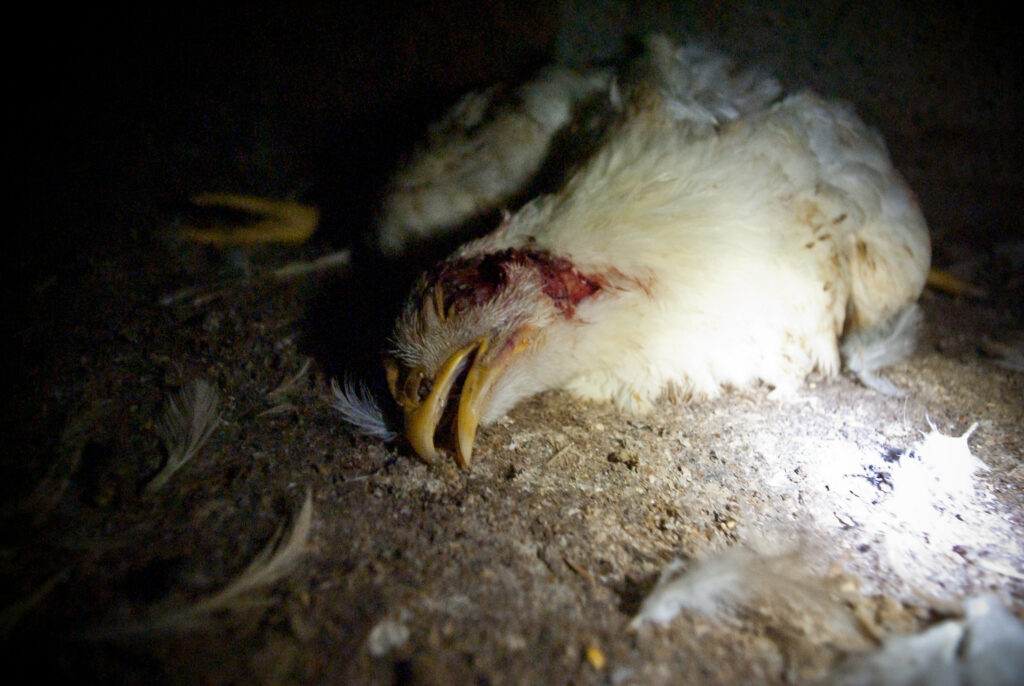
Our Investigations Inside Slaughterhouses
For over 13 years, our team has documented what happens inside slaughterhouses all around the world, releasing 19 investigations to date. Our first investigation was in Spain in 2008, when we went inside five slaughterhouses in the north of the country, exposing for the first time the systemic cruelty and mistreatment of animals in these horrible places.
In 2017, Animal Equality documented the widespread cruelty perpetuated in slaughterhouses in the Mexican state of Jalisco, gathering evidence of the terrifying conditions in which animals were kept and then killed in several facilities. As a result, we launched an initiative to demand the criminalization of acts of cruelty towards farmed animals, and thanks to our work, a historic reform introducing new crimes was approved.
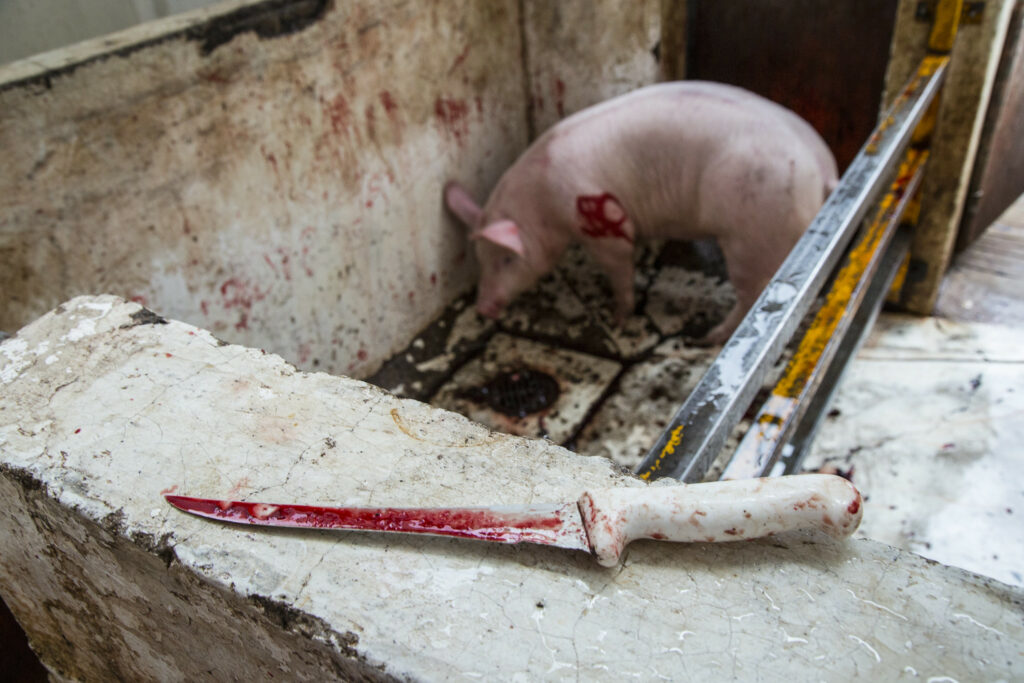
The True Price of an Egg
The first time our investigators entered a hen farm was in 2015, in Germany, and we continue to conduct investigations to reveal the cruelty of the egg industry worldwide.
In 2017, we released the first Italian investigation inside the egg industry. This investigation marked a decisive moment in the animal protection movement, as it started our work against cages. In 2018, we published shocking images of the suffering of caged hens in farms owned by some of the biggest egg producers in both the UK and Germany.
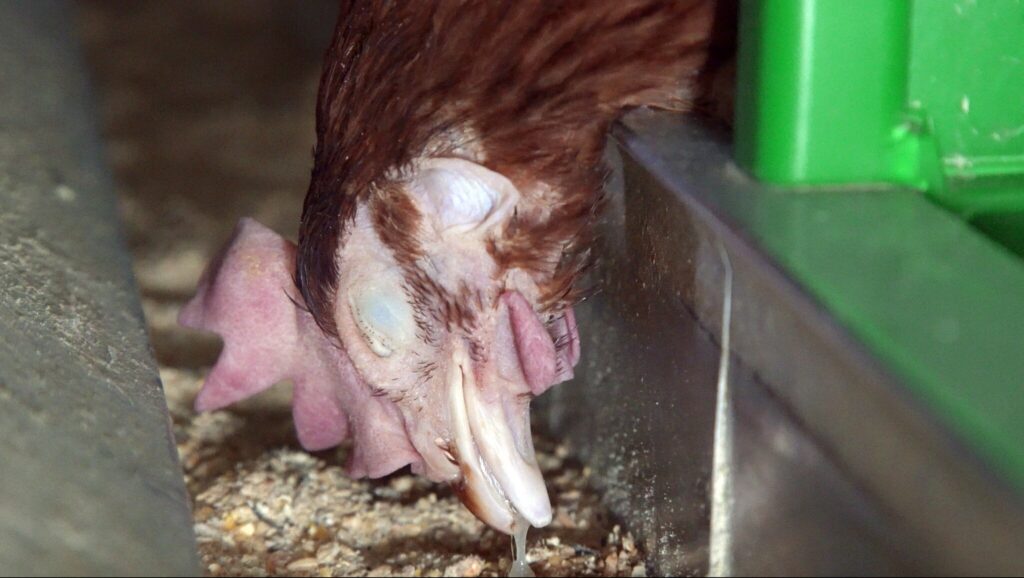
Our investigations are an important tool for our corporate awareness work, as they provide us with the evidence that we need to convince companies to adopt policies that have a real impact on the lives of animals. This was the case with RBI (Restaurants Brand International) –owner of the leading fast-food chain Burger King– and other major chains such as Yum! Brands, Subway, MD, LIDL: all decided to adopt a global cage-free policy.
Our Work to Expose the Dairy Industry
We first exposed the dairy industry in 2016 when we carried out an undercover investigation inside a dairy farm in the UK, documenting the systemic violence towards calves.
And in 2019, Animal Equality’s team of investigators released a shocking investigation inside the Summit Calf Ranch in Nebraska –a facility housing 11,000 calves and owned by Tuls Dairy, one of the suppliers of the famous cheese brand Bel Brands.
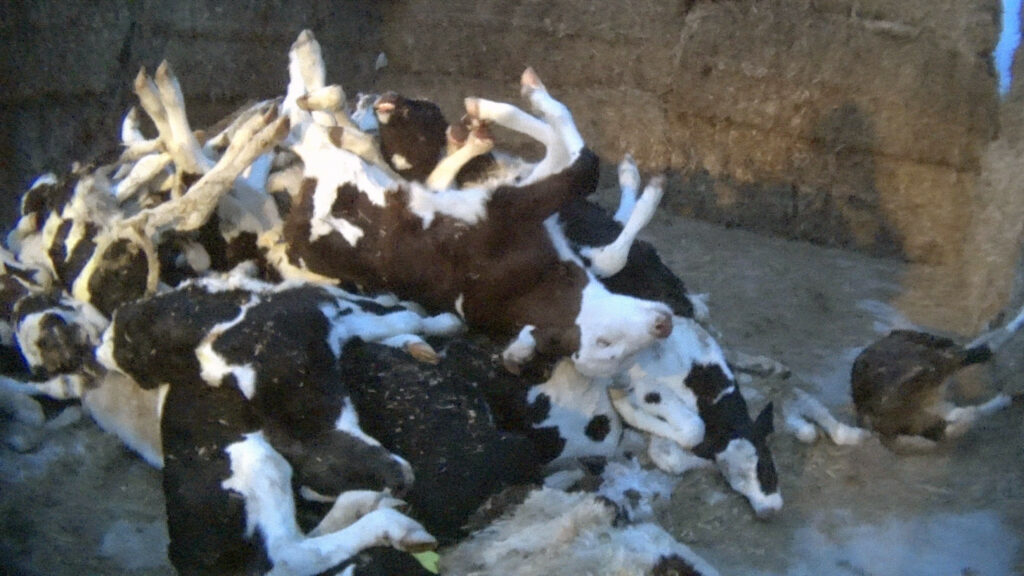
6. Transport Journeys
Since 2013, Animal Equality has released a number of investigations into the unacceptable transport conditions that animals face in Europe. Our 10 investigations have followed young lambs and cows transported along routes that span up to 1,200 miles long, on journeys lasting for hours, weeks, and sometimes months.
“The Short Life of Lambs” was our first investigation into the transport of lambs, released in 2013, where we revealed the long and difficult journeys that lambs are forced to endure on the way to the slaughterhouse.
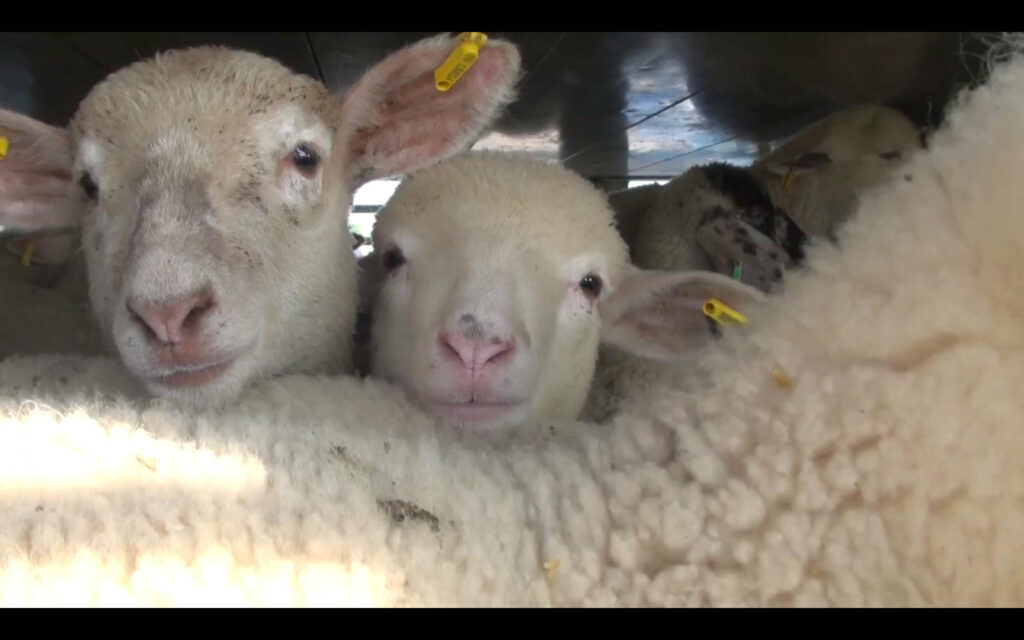
We have also documented the scandal of the transport ships Elbeik and Karim Allah, which carried huge numbers of animals bound for the Middle East, but found themselves adrift for months in the Mediterranean. The case led to a complaint submitted by Spain to the European Commission.
In 2020, the European Parliament approved the establishment of a commission of inquiry into the transport of live animals, which after 18 months of work, recognized that there are gaps in existing laws that need to be addressed.
Our Campaign to Ban Foie Gras
Since 2012, Animal Equality has been working all over the world to ban foie gras, a so-called “delicacy” which is produced by force-feeding ducks and geese.
Of our five investigations conducted in France and Spain, the first was carried out undercover in Catalonia, Spain, and following our complaints, disciplinary action was initiated against the owner of one of the most famous restaurants in the world, Mugaritz.
In 2018, actor and animal advocate Peter Egan, and TV show veterinarian Emma Milne, joined Animal Equality to document the cruel force-feeding practice on a foie gras farm in France.
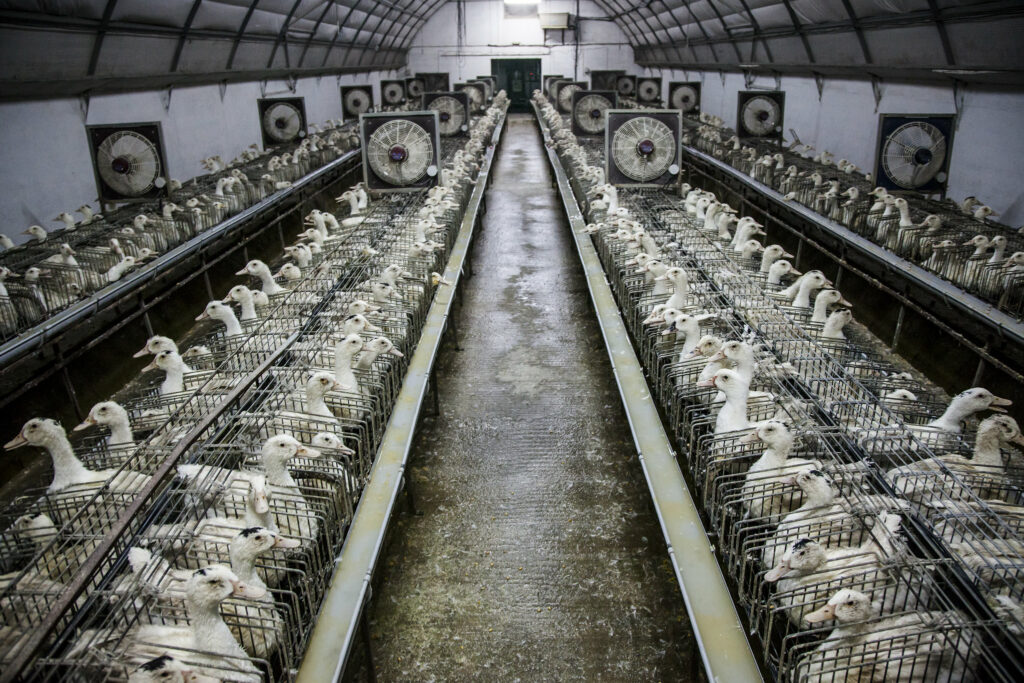
Thanks to our investigations in France and Spain and the work carried out internationally, India boasts a remarkable record: in 2014 it became the first country in the world to ban the import of foie gras at the national level.
Now may be the time for the UK to completely ban force-feeding. We have been campaigning on the issue since 2017, calling on the UK Government to implement a ban on the importation of foie gras, and the ban could soon be on the horizon.
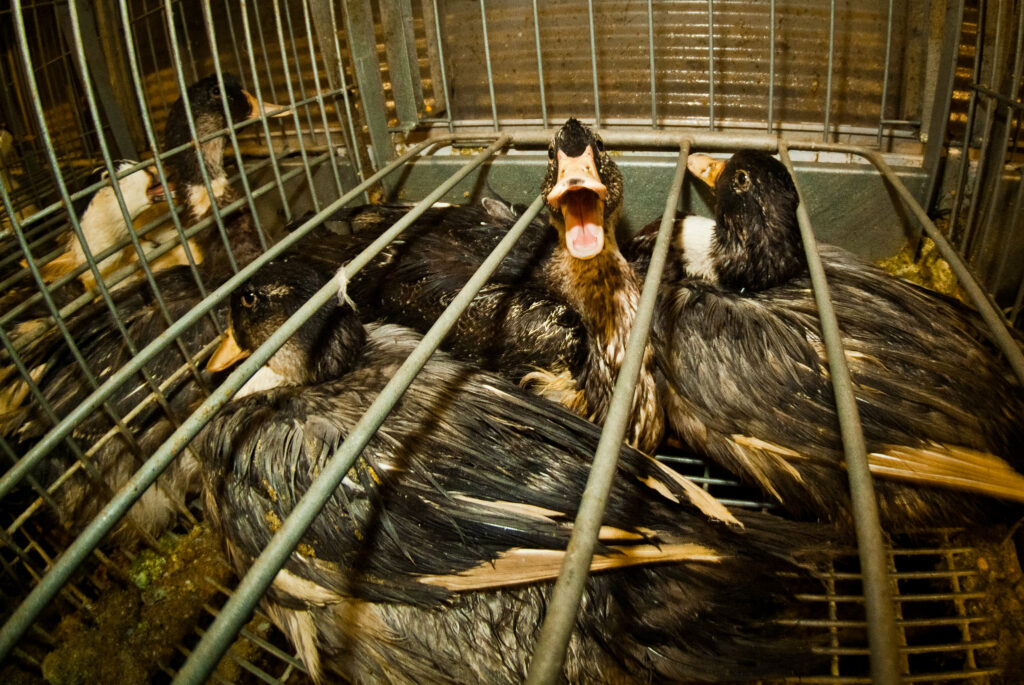
The Dog and Cat Meat Trade in ‘Wet Markets’
Between 2014 and 2019, Animal Equality carried out its first investigations into wet markets, where live animals are sold and brutally slaughtered. The Animal Equality team recorded shocking images from markets in China, Vietnam, and India.
In the midst of the Covid-19 pandemic, in April 2020, we decided to show this frightening reality to the public, launching an international campaign to demand the immediate closure of cruel and dangerous wet markets around the world.
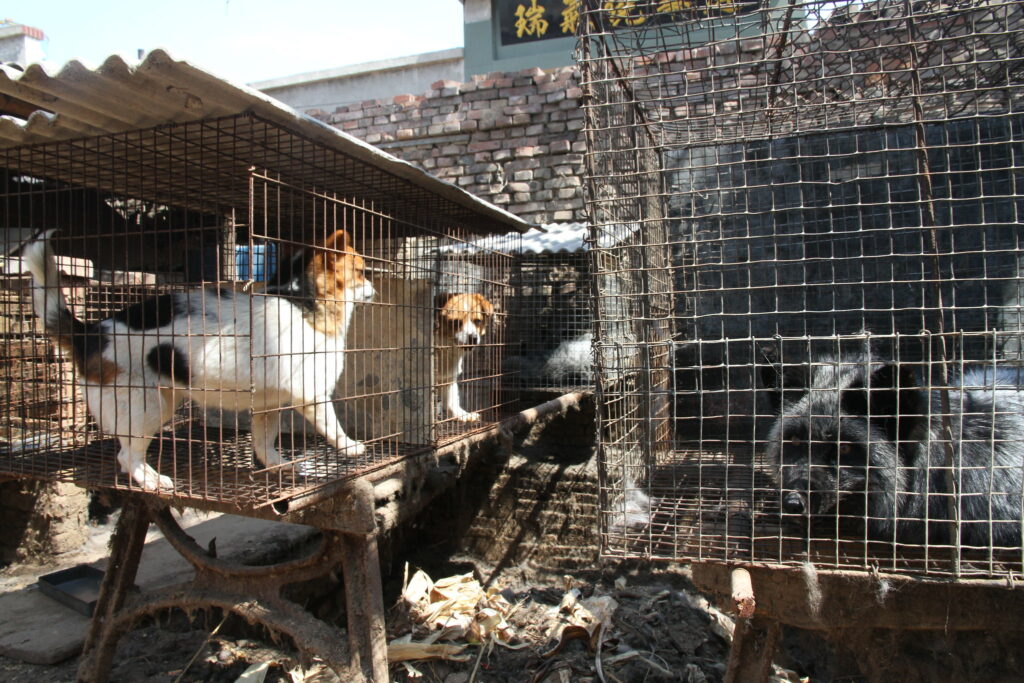
Dogs and cats are known to be sold in wet markets, but they also suffer on farms which we have investigated since 2013. Over the years, our investigative team has conducted six different field investigations and our work in China in 2013 led to various local complaints that prompted the authorities to close 33 dealers and a slaughterhouse.

The Link Between Deforestation and Farming
Factory farming is the main cause of illegal deforestation and fires in the Amazon and in the swampy areas of the Pantanal in Brazil.
In 2019 and 2021, Animal Equality carried out investigations in these areas and released a report titled ‘Why is Brazil Burning?,’ which documented how the meat industry is causing the destruction of the ecosystem of Brazil and is causing immense suffering to a huge number of animals.
With the use of drone technology, our investigative team was able to obtain aerial images of two farms in the state of Jalisco, Mexico, where more than 89,000 pigs are confined.
In addition to collecting video material on the extreme conditions in which these animals live, our team conducted a geographical analysis of the area to document the devastating impact of these farms on the ecosystem, presented in a short documentary titled “Enemy of the Planet.”
We also reported 44 farms to the authorities, asking that they be held accountable for damage caused to the environment and urging for the closure of these facilities.
The Silent Suffering of Fish
Animal Equality has conducted three investigations into intensive fish farming, with the first carried out in the United Kingdom in 2021.
The images and footage we released were captured inside a Scottish Salmon Company slaughterhouse, a company that supplies some of the largest supermarkets in the UK and exports to over 20 countries around the world.
The investigation was the first of its kind to be published in the UK, and it showed numerous salmon being slaughtered while showing clear signs of consciousness.
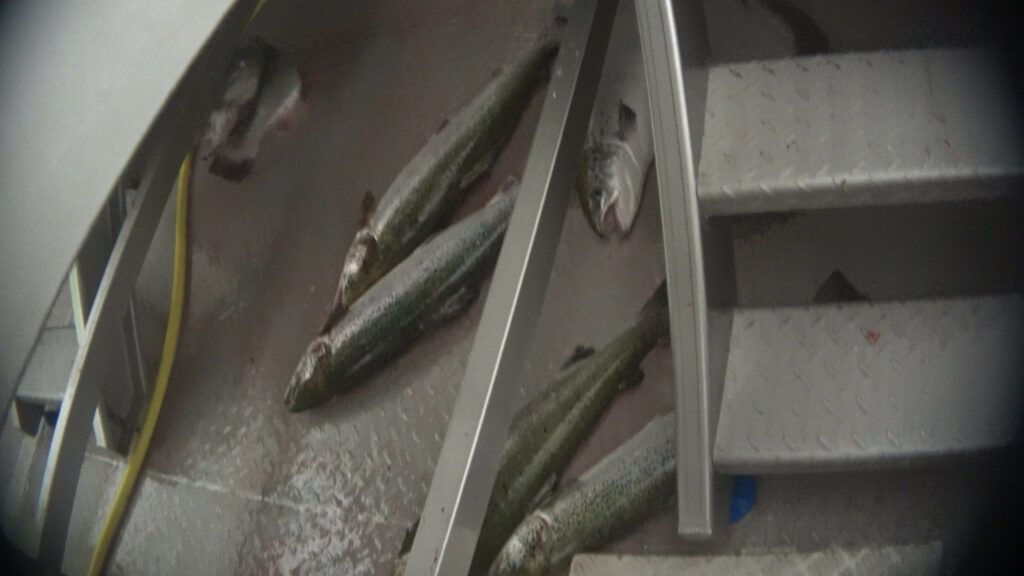
India contributes six percent of fish production globally and is the second-largest producer in the world after China.
Animal Equality released an investigation into the fishing and aquaculture industries in West Bengal, Andhra Pradesh, Tamil Nadu, and Telangana, areas famous for aquaculture.
The investigation showed the terrible conditions that fish face on the intensive farms there.

The Killing of Male Chicks
Our first investigation inside the hatcheries was conducted in Spain in 2016. Our footage revealed the systematic slaughter of male chicks. Unable to produce eggs, male chicks are treated as a waste product and crushed by hand, suffocated, or shredded alive while conscious.
Thanks to our work and our campaign “Stop the Slaughter of Male Chicks,” Italy has joined countries like France and Germany in taking a historic step towards banning the selective killing of male chicks by 2026. In collaboration with policymakers, Animal Equality submitted an amendment to the government.

Gadhimai: The Festival of Animal Sacrifice
Every five years, the festival dedicated to the Hindu goddess Gadhimai–the world’s largest animal sacrifice in Nepal–claims thousands of victims. Buffalo, sheep, goats, and birds are brutally slaughtered and decapitated by worshippers. In 2014, Animal Equality’s investigative team captured images of the massacre using drones and hidden cameras and broadcast these images around the world.
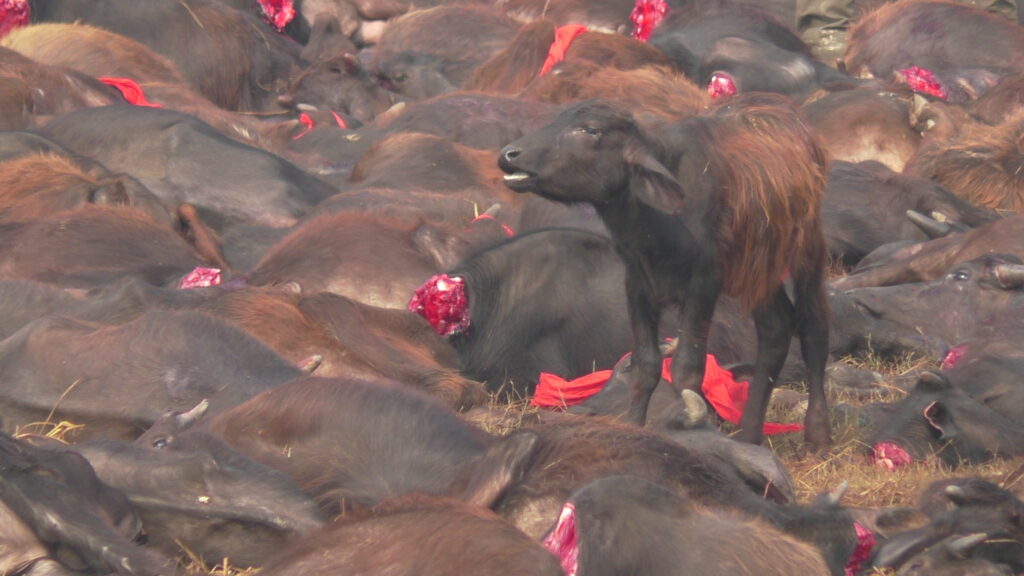
After extensive discussions with Animal Equality, the Indian government decided to ban the transport of animals into Nepal during the Gadhimai festival. This decision was vital in reducing the number of animals sacrificed by about 70 percent in November 2014.
In 2019, the event was repeated and our investigators were present to document the violence and abandonment of animals left to suffer a slow and excruciating death.
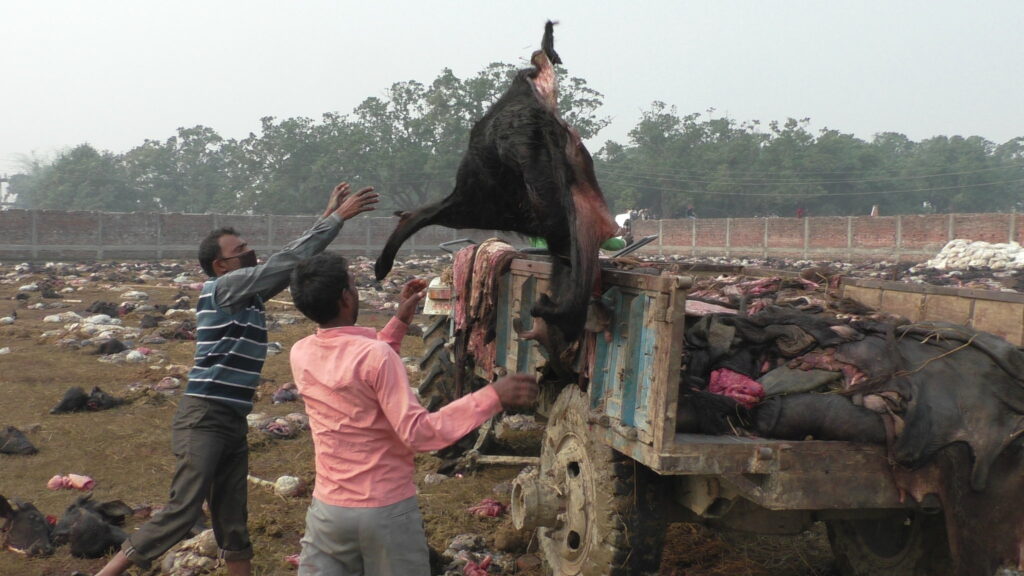
In collaboration with the Red Cross, Animal Equality India’s team organized an alternative campaign to the festival during which worshippers were able to donate their own blood to pay homage to the goddess instead of sacrificing animals. Thanks to this initiative, killings were reduced by nearly 80 percent.
Tuna Slaughter in Italy
In 2012, Animal Equality Italy carried out an undercover investigation of the slaughter of thousands of tuna in the Mediterranean Sea. “The Tuna Slaughter Unmasked” shows shocking images of the brutal killing of bluefin tuna that takes place every year.
After being captured, they are gathered in a so-called death chamber until, once they have been herded together, the slaughter begins. This is done by violently harpooning the tuna and gathering them on boats, where they die in agony from asphyxiation or blood loss.

Intensive Farming of Ducks in Germany
Intensive farming is also cruel to ducks. That’s why Animal Equality decided to investigate some of Germany’s largest duck meat producers starting in 2014. Thanks to this first shocking investigation conducted within numerous farms, Animal Equality was able to shut down these companies for several months.
In May 2017, our investigative team went to one of the largest duck farms in Germany for a second time and our footage revealed that the ducks, semi-aquatic animals, were denied their natural behaviors like swimming or being outdoors.
Investigation into Rabbit Factory Farms
From 2012 to 2014, Animal Equality investigated 70 rabbit farms and 4 slaughterhouses in Spain, producing a substantial body of evidence on the abuses and cruelty that these animals suffer within the meat industry.
As a result, Animal Equality took legal action against the facilities to demand the stop of these abuses.
And our work doesn’t stop there. In 2015 and 2018, our team of investigators worked to collect footage inside Italian rabbit farms and slaughterhouses.
In 2018, we shared “Cruelty without end: the slaughter of rabbits” with the world.
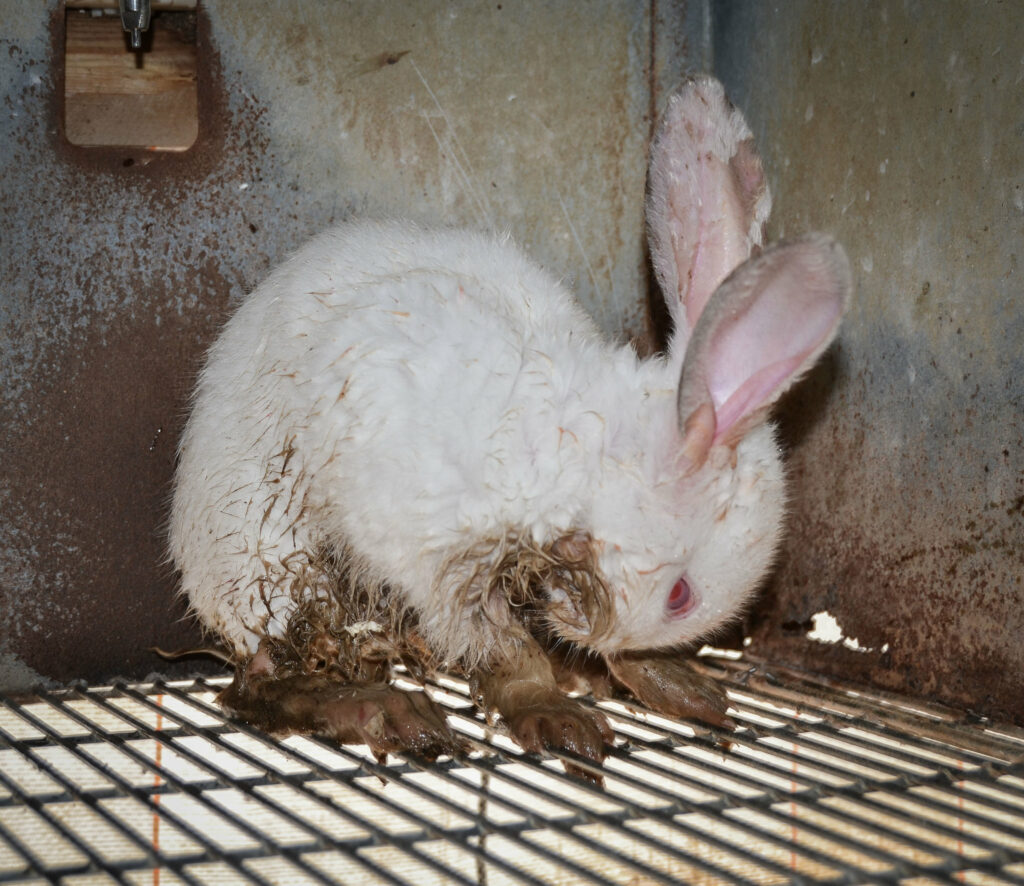
These are just some of our investigations from the last 15 years that have made an impact on the lives of millions of animals. Only through investigative work can we continue to bring to light what the meat industry tries desperately to hide from the public.
We are the voice of the defenseless animals and will continue to support those who fight on the front lines for animals every day.
Recommended
